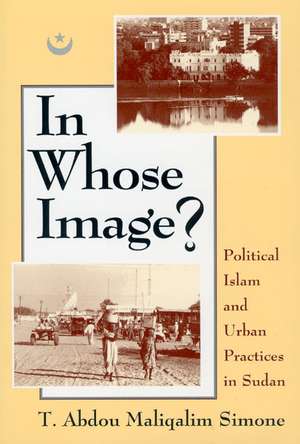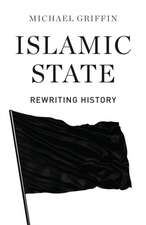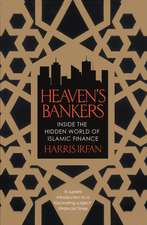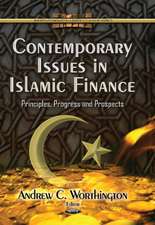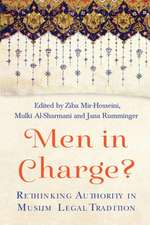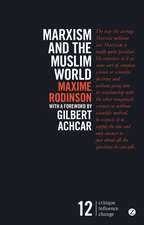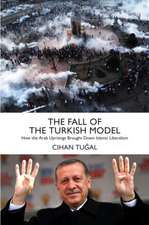In Whose Image?: Political Islam and Urban Practices in Sudan
Autor T. Abdou Maliqalim Simoneen Limba Engleză Paperback – 30 apr 1994
A Muslim scholar with extensive experience in Africa, T. Abdou Maliqalim Simone was recruited by the Islamic fundamentalist Shari‘a Movement in Sudan to act as consultant for its project to unite Muslims and non-Muslims in Khartoum's shanty towns. Based on his interviews with hundreds of individuals during this time, plus extensive historical and archival research, In Whose Image? is a penetrating examination of the use of Islam as a tool for political transformation.
Drawing a detailed portrait of political fundamentalism during the 1985-89 period of democratic rule in the Sudan, Simone shows how the Shari‘a Movement attempted to shape a viable social order by linking religious integrity and economic development, where religious practice was to dominate all aspects of society and individuals' daily lives. However, because Sudanese society is remarkably diverse ethnically and religiously, this often led to conflict, fragmentation, and violence in the name of Islam.
Simone's own Islamic background leads him to deplore the violence and the devastating psychological, economic, and cultural consequences of one form of Islamic radicalism, while holding to hope that a viable form of this inherently political religion can in fact be applied. As a counterpoint, he ends with a discussion of South Africa's Call of Islam, which seeks political unity through a more tolerant interpretation of Islam.
As an introduction to religious discourse in Africa, this book will be widely read by students and scholars throughout African Studies, Religious Studies, Anthropology, and Political Science.
Drawing a detailed portrait of political fundamentalism during the 1985-89 period of democratic rule in the Sudan, Simone shows how the Shari‘a Movement attempted to shape a viable social order by linking religious integrity and economic development, where religious practice was to dominate all aspects of society and individuals' daily lives. However, because Sudanese society is remarkably diverse ethnically and religiously, this often led to conflict, fragmentation, and violence in the name of Islam.
Simone's own Islamic background leads him to deplore the violence and the devastating psychological, economic, and cultural consequences of one form of Islamic radicalism, while holding to hope that a viable form of this inherently political religion can in fact be applied. As a counterpoint, he ends with a discussion of South Africa's Call of Islam, which seeks political unity through a more tolerant interpretation of Islam.
As an introduction to religious discourse in Africa, this book will be widely read by students and scholars throughout African Studies, Religious Studies, Anthropology, and Political Science.
| Toate formatele și edițiile | Preț | Express |
|---|---|---|
| Paperback (1) | 383.57 lei 6-8 săpt. | |
| University of Chicago Press – 30 apr 1994 | 383.57 lei 6-8 săpt. | |
| Hardback (1) | 564.76 lei 3-5 săpt. | +24.08 lei 4-10 zile |
| University of Chicago Press – 31 mai 1994 | 564.76 lei 3-5 săpt. | +24.08 lei 4-10 zile |
Preț: 383.57 lei
Nou
Puncte Express: 575
Preț estimativ în valută:
73.40€ • 76.20$ • 61.21£
73.40€ • 76.20$ • 61.21£
Carte tipărită la comandă
Livrare economică 25 martie-08 aprilie
Preluare comenzi: 021 569.72.76
Specificații
ISBN-13: 9780226758701
ISBN-10: 0226758702
Pagini: 284
Dimensiuni: 152 x 229 x 15 mm
Greutate: 0.4 kg
Ediția:1
Editura: University of Chicago Press
Colecția University of Chicago Press
ISBN-10: 0226758702
Pagini: 284
Dimensiuni: 152 x 229 x 15 mm
Greutate: 0.4 kg
Ediția:1
Editura: University of Chicago Press
Colecția University of Chicago Press
Notă biografică
T. Abdou Maliqalim Simone is associate professor of clinical and social psychology and African studies at the Medgar Evers College of the City University of New York.
Cuprins
Preface
Pt. 1: Struggles for the Familiar
Ch. 1: Religion, Islam, and the State in Africa
Ch. 2: Sudan: The Search for Political Coherency
Ch. 3: The Civil War
Pt. 2: Out of Bounds Islam and Transformation
Ch. 4: Indigenous Solutions: Islamicization and Postcolonial Identity
Ch. 5: Sociality of the Capital: Transformation of Khartoum
Ch. 6: The Discursive Practices of the Islamic Movement
Ch. 7: Politics of Cultural Revival
Ch. 8: The Religion of Race, the Race for Religion
Pt. 3: A Reference from Another Africa
Ch. 9: Advantageous Marginalities: A South African Critique of the Islamic Movement in Sudan
Notes
Index
Pt. 1: Struggles for the Familiar
Ch. 1: Religion, Islam, and the State in Africa
Ch. 2: Sudan: The Search for Political Coherency
Ch. 3: The Civil War
Pt. 2: Out of Bounds Islam and Transformation
Ch. 4: Indigenous Solutions: Islamicization and Postcolonial Identity
Ch. 5: Sociality of the Capital: Transformation of Khartoum
Ch. 6: The Discursive Practices of the Islamic Movement
Ch. 7: Politics of Cultural Revival
Ch. 8: The Religion of Race, the Race for Religion
Pt. 3: A Reference from Another Africa
Ch. 9: Advantageous Marginalities: A South African Critique of the Islamic Movement in Sudan
Notes
Index
